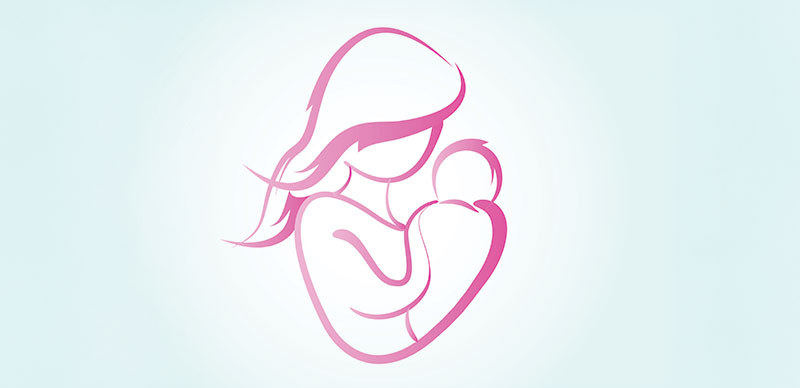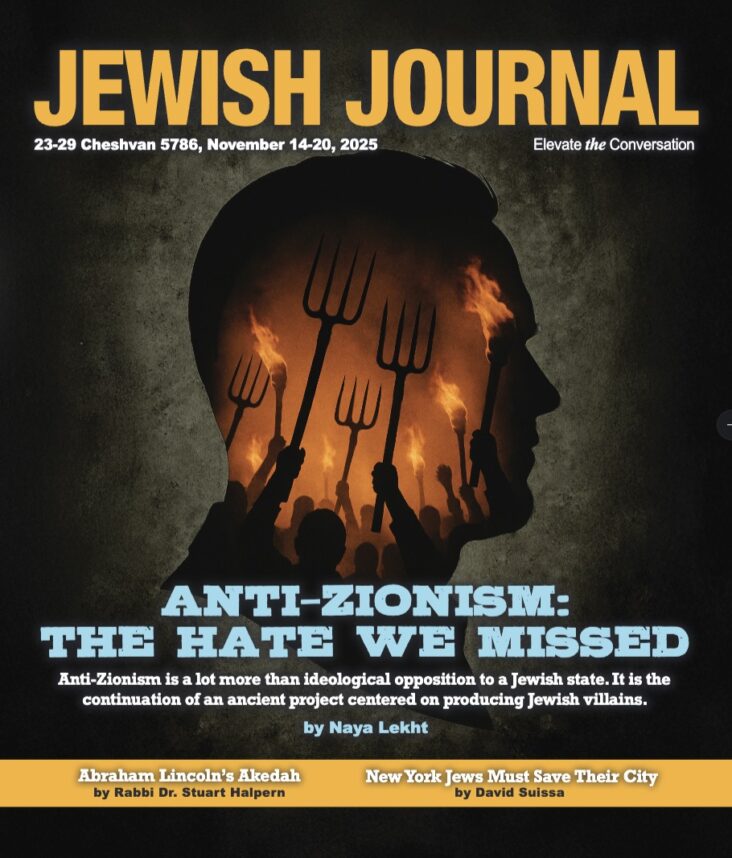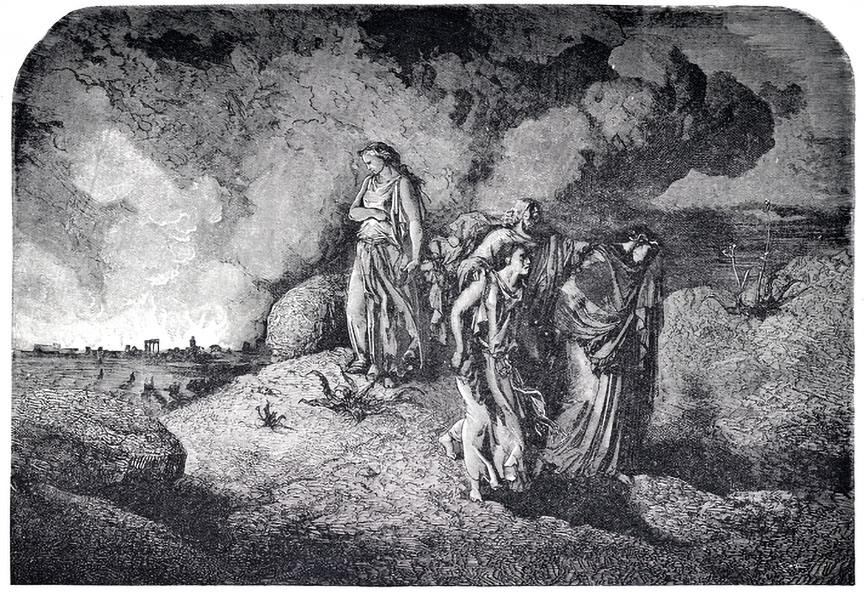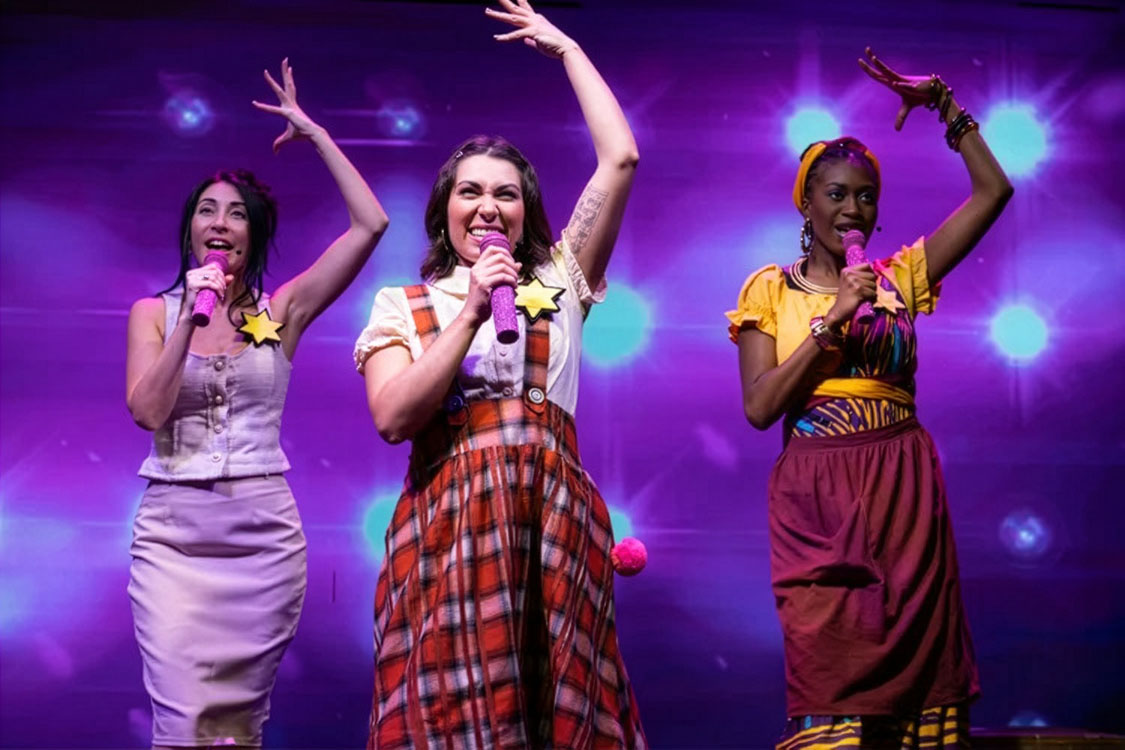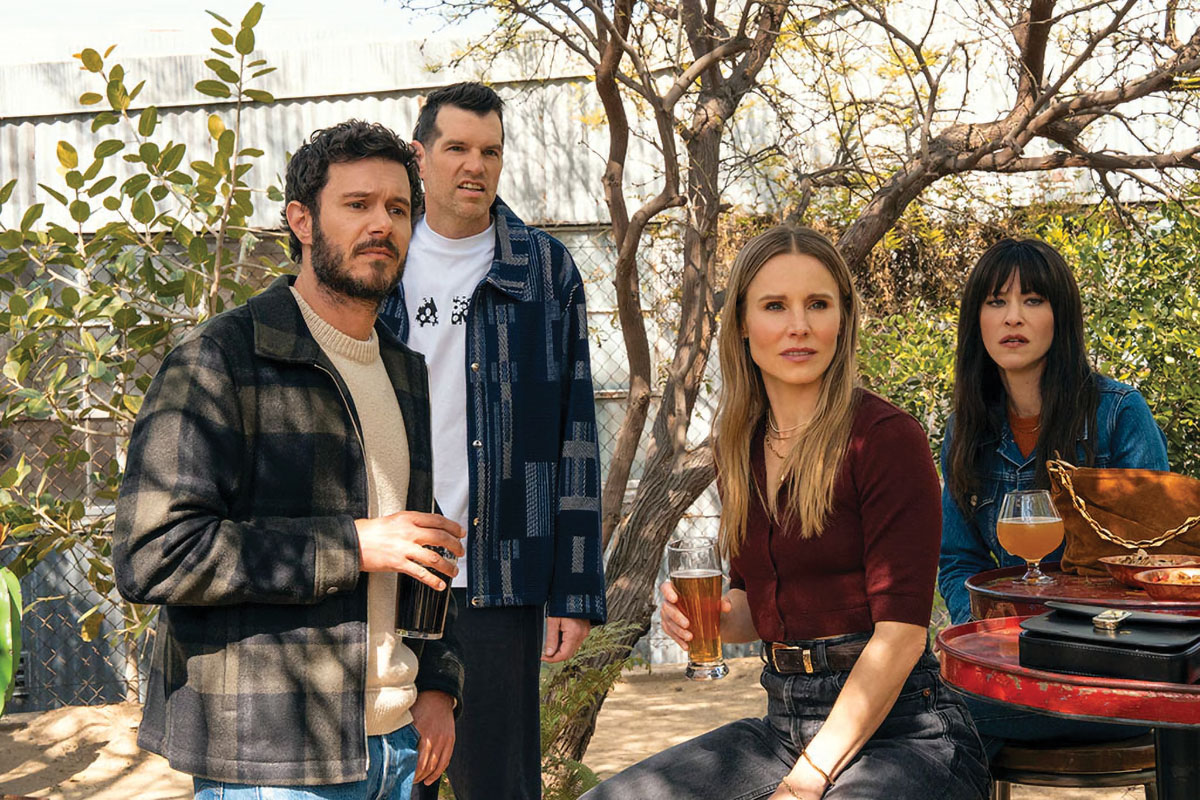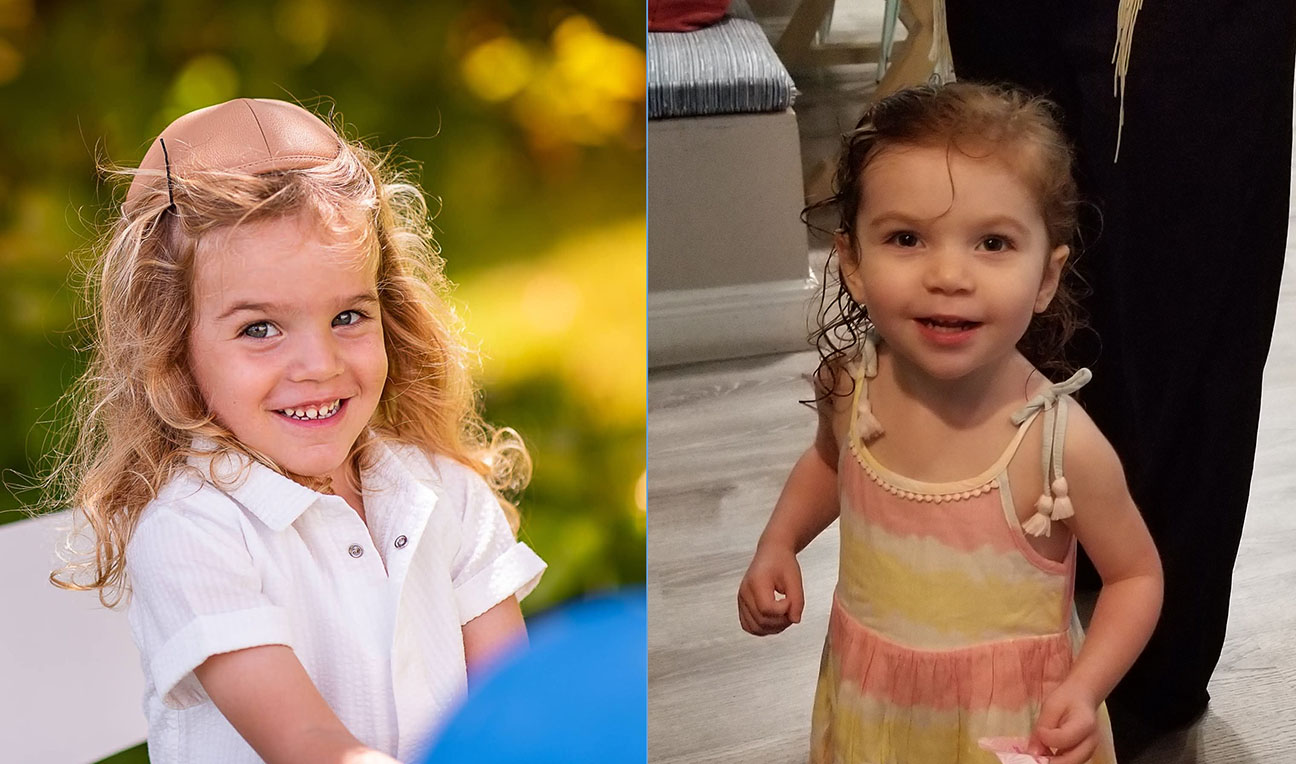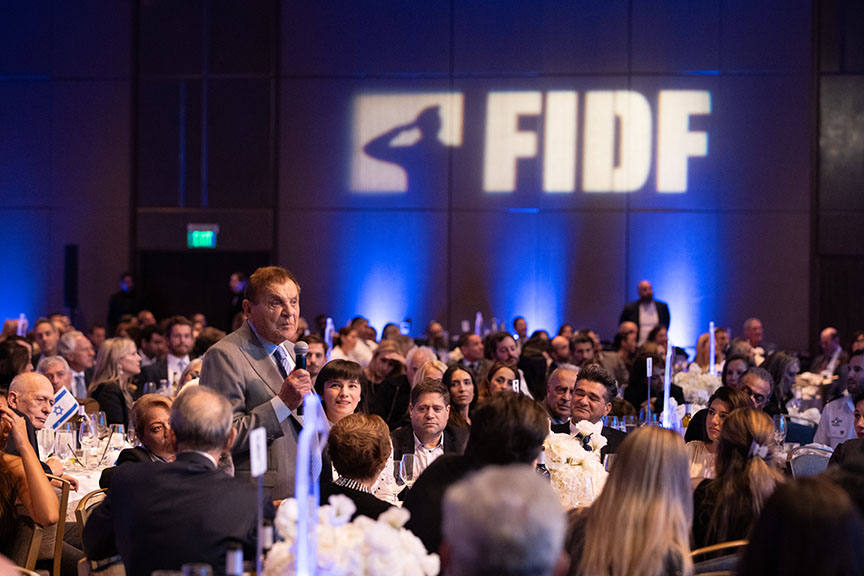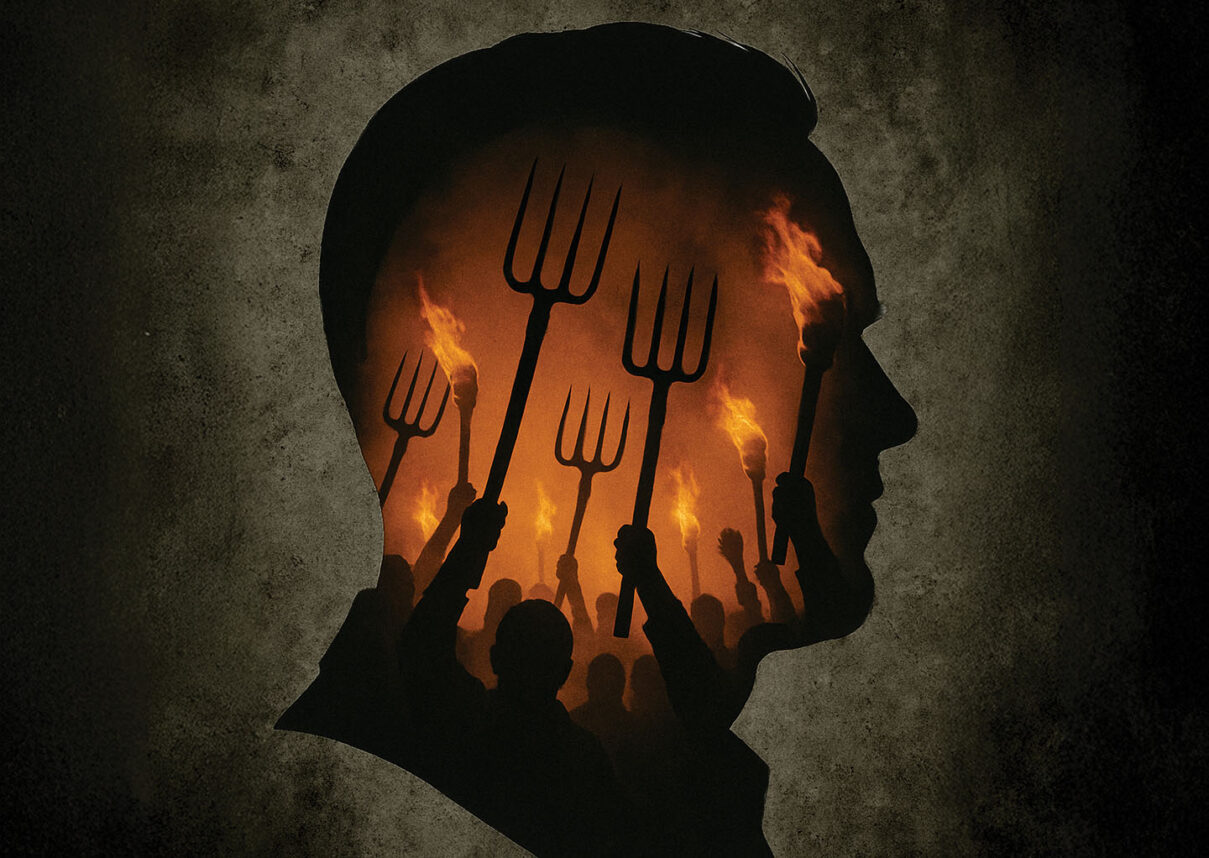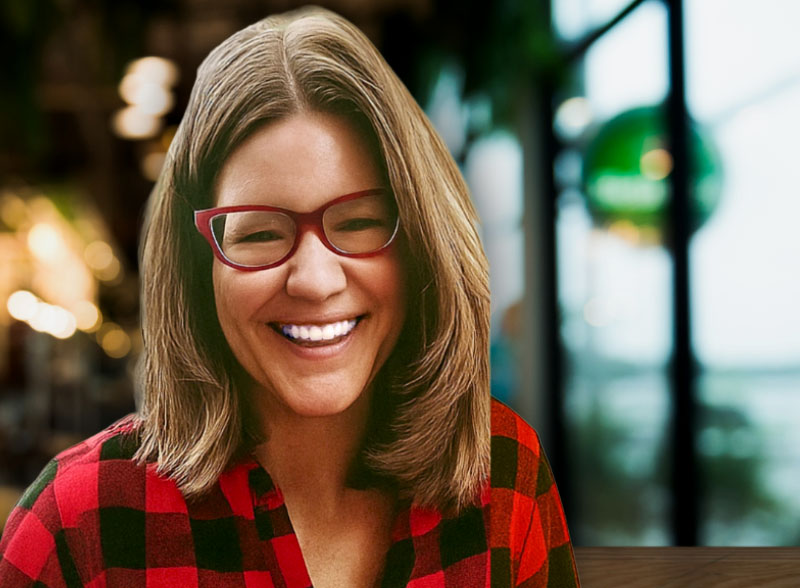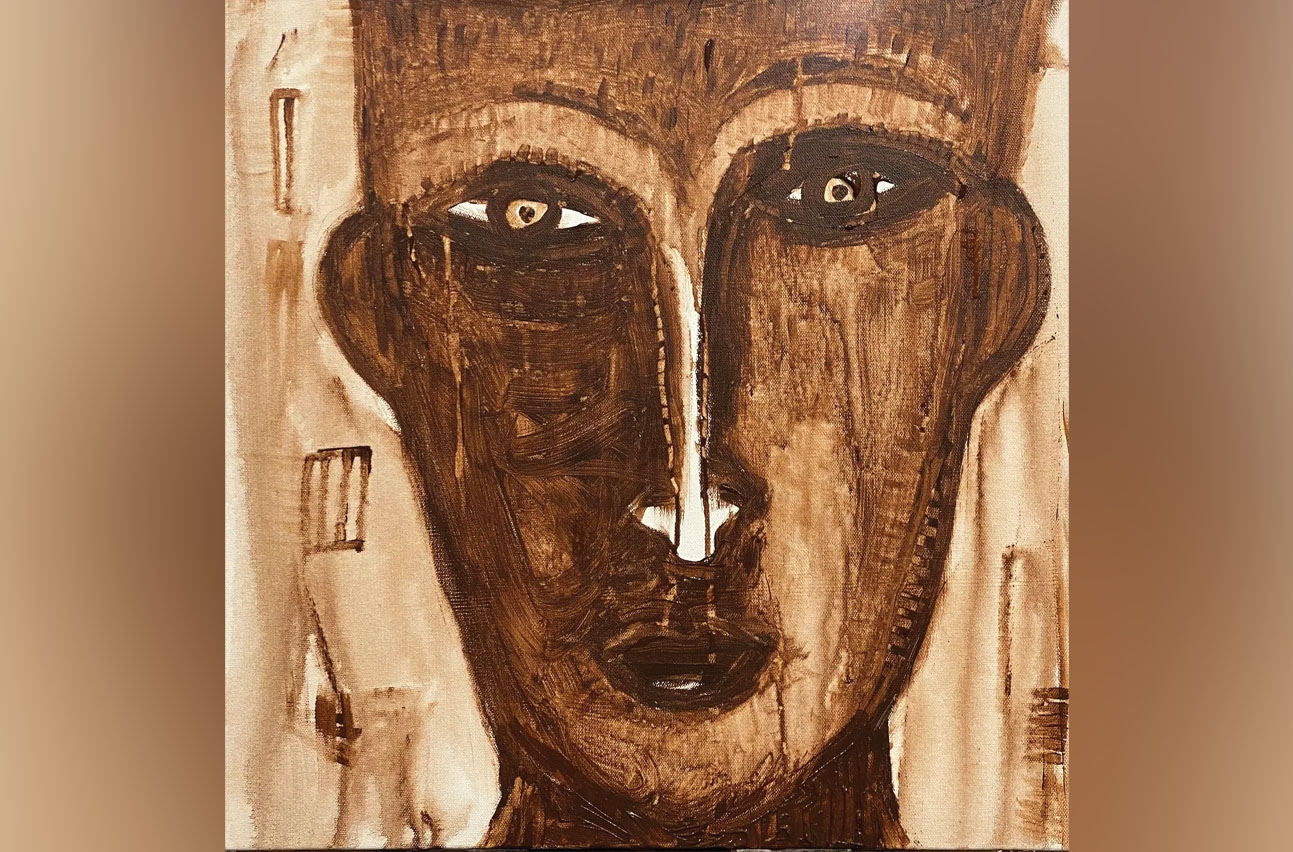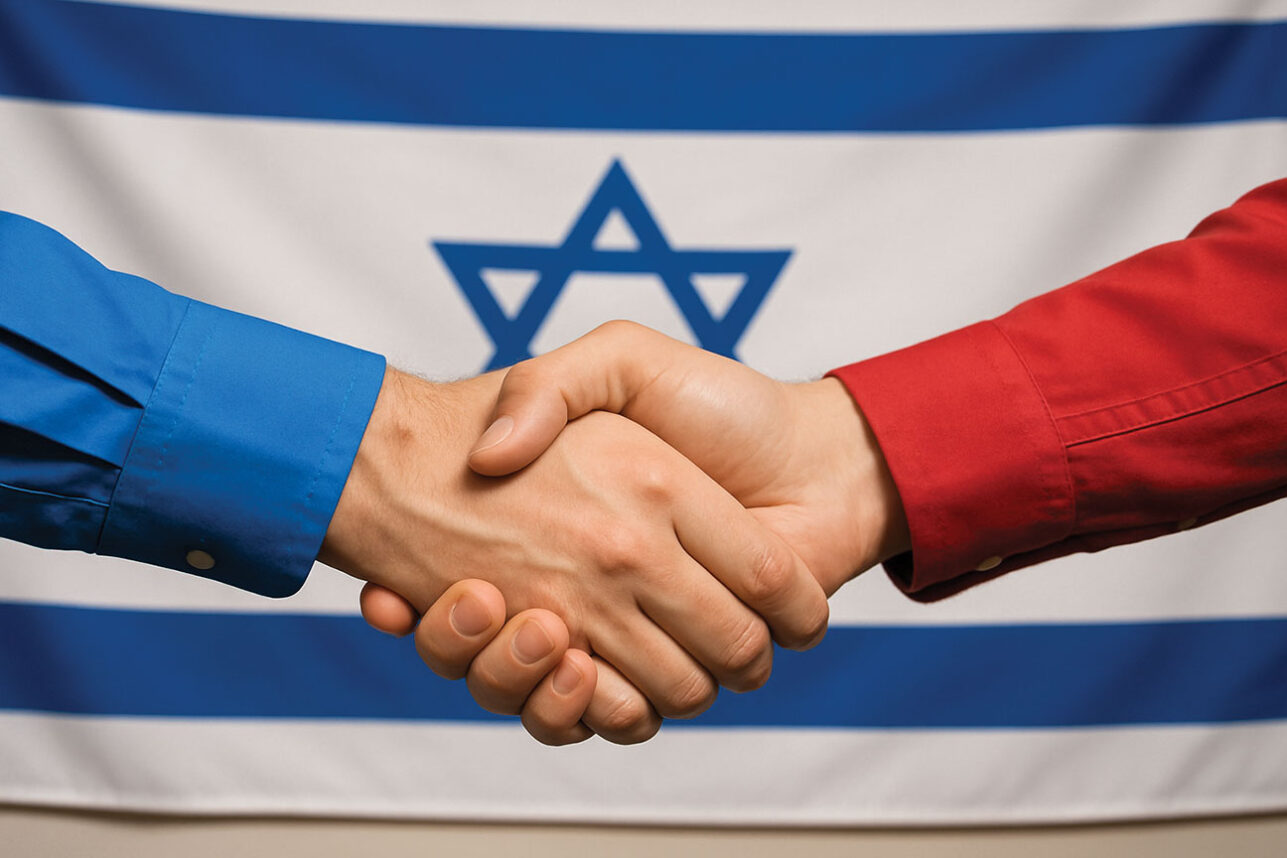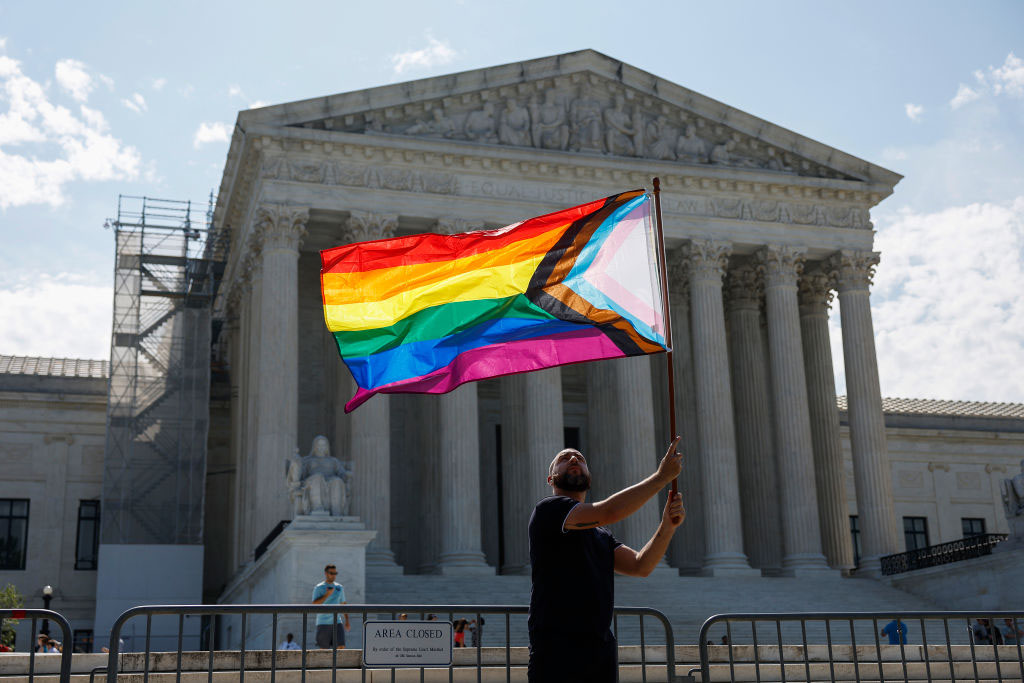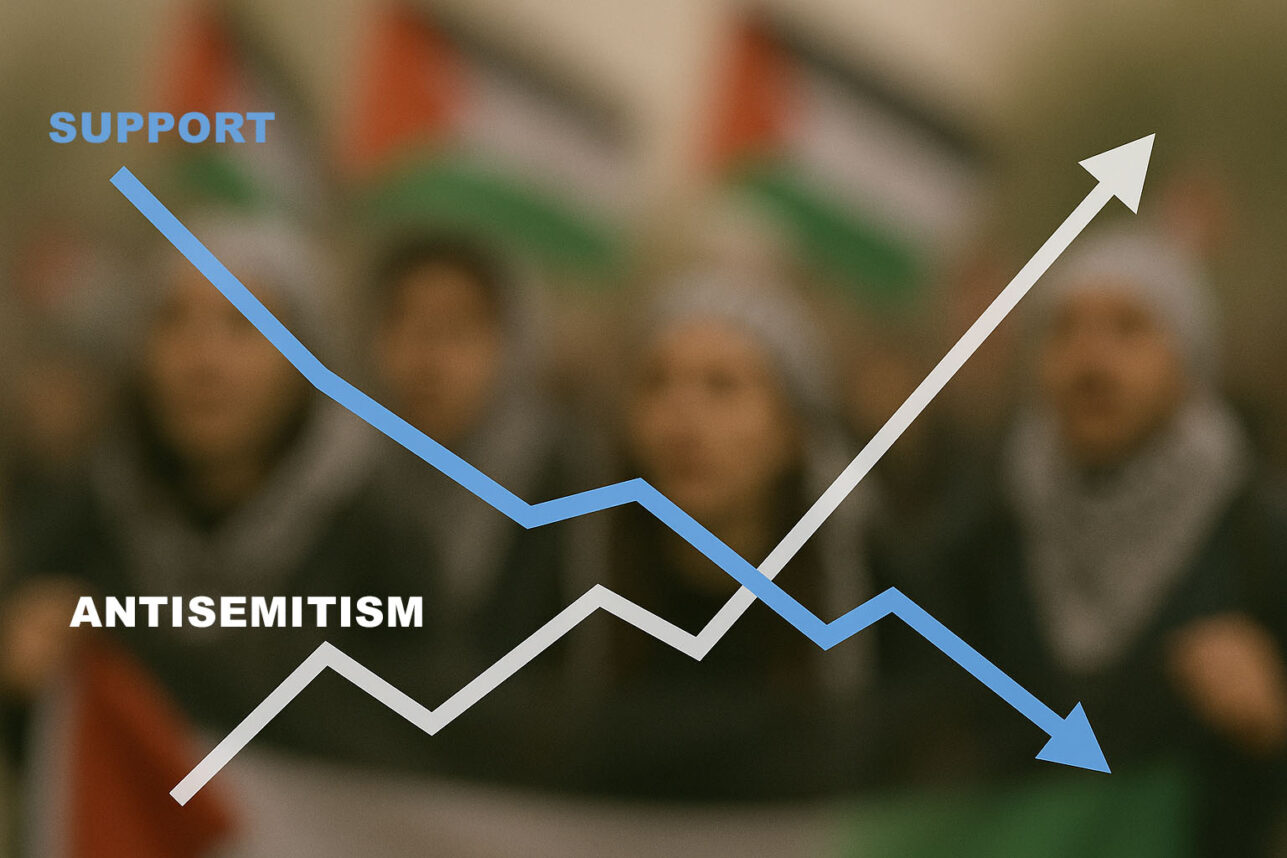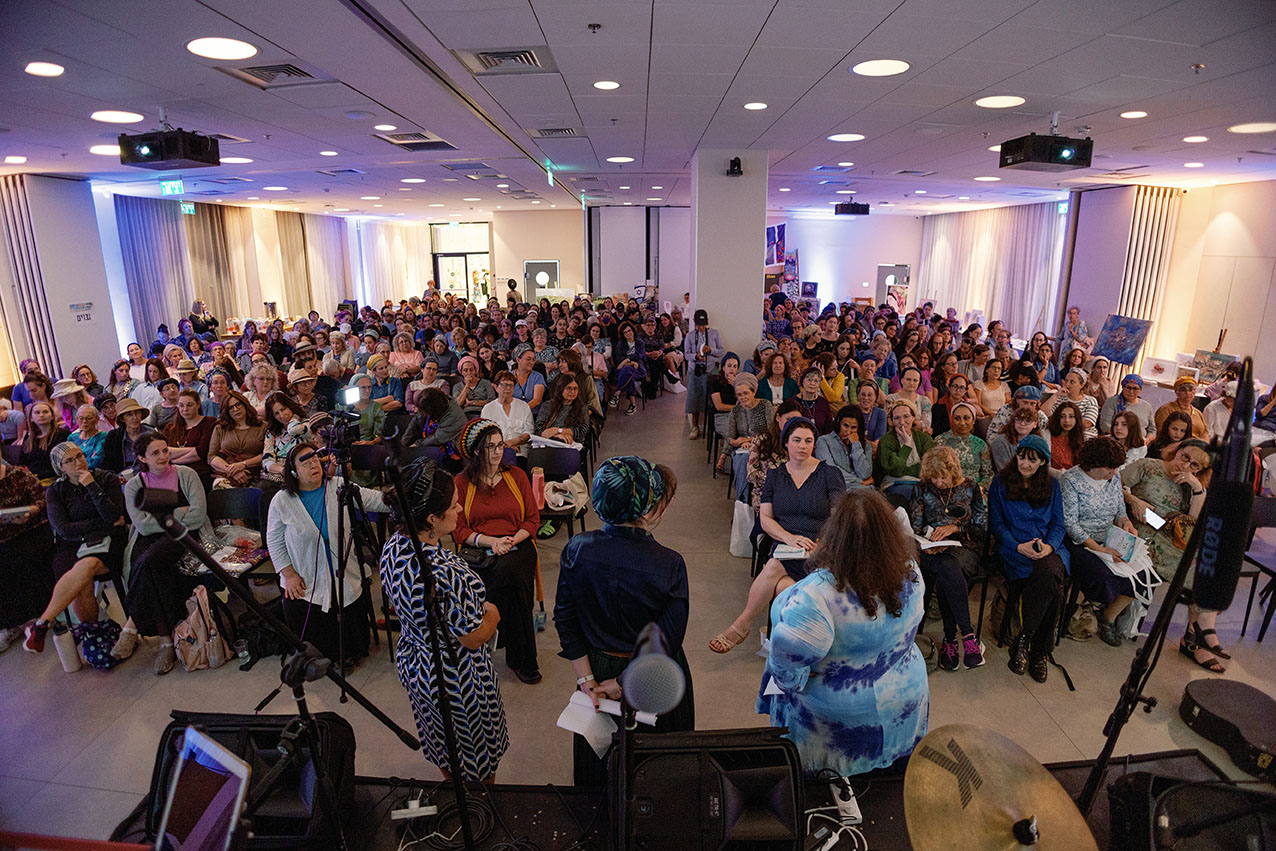
I have a new prayer to say after my husband recites Havdalah on Saturday nights.
It’s called “A Mother’s Havdalah,” by Jessica Levine Kupferberg, originally from La Jolla, California, and is one of 116 prayers written by 55 women, featured in the new English-Hebrew book, “Az Nashir — We Will Sing Again, Women’s Prayers for Our Time of Need.” It was published recently in Jerusalem and feted at an inspiring musical literary launch on Oct. 9, during the Ten Days of Repentance, at the Nefesh b’Nefesh campus in Jerusalem. Almost 400 women filled the hall.
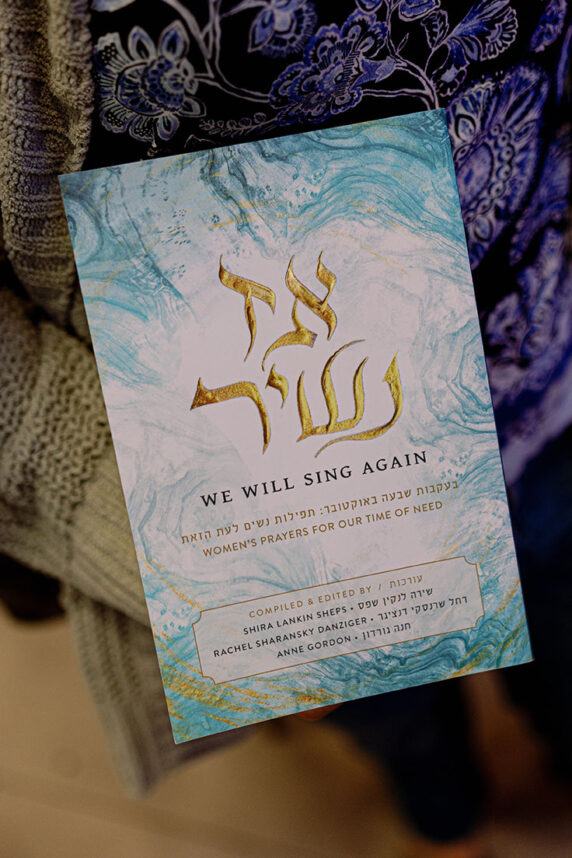
The writers come from many different countries and professions, most of them native English speakers, and about a third native Israelis. Each expertly translated prayer appears in English and Hebrew on facing pages, so they can be appreciated by a wide audience. They were all written by women, but are meant to be read, or recited, by anyone.
Levine Kupferberg writes (excerpts):
May it be a good week.
May the cinnamon and clove linger.
…
May we open our phones with a sigh of relief.
May the week bring bursts of joy;
May we not add to our grief –
…
May we hear good news.
May the world be safer for the Jews
And all of mankind.
May our children reach all their destinations.
May they hug nuance and handle complications…
And please,
God,
May they come home safely …
Other Californians featured in the book are author Sarah Tuttle-Singer (Venice Beach), therapist Briana Grogin (Los Angeles), language editor and lactation consultant Adina Kopinsky (Los Angeles) and Liat Jackman, who was born in L.A. and grew up in Israel and the U.S.
Today Jackman lives in Neve Daniel in Gush Etzion. Her son, Ephraim Jackman, 21, was injured in a battle in Darg El Tufah, in Gaza, on Dec. 26, 2023. He helped save his unit, and died of his wounds soon after.
She titled her work “How Much Longer? A Grieving Mother’s Prayer” (excerpts):
Another fallen soldier.
Another hole in the family.
Hashem – how much longer
Until this decree ends?
There are miracles as well,
And people are saved.
But there are also
Painful stories
…
Hashem!
Grant our leaders wisdom.
Grant them courage.
Grant them knowledge.
Grant them humility.
…
You took good ones.
You took precious ones.
You took Your sons
Who were worthy.
…
Please, listen to our cries!
Hear our shouts!
Send a speedy geulah (redemption)
To Your aching nation.
Her prayer is followed by lines written by Ephraim in his diary shortly before entering Gaza:
War: A moment of power.
A moment of assessment.
A moment of truth and judgment.
But Hashem is with us
As we try to battle the war of truth against falsehood.
The difficulty to be patient can rise sky-high.
We want to move ahead and continue living.
How did this book come to be?
Shira Lankin Sheps woke up on the seventh day of Pesach (April 29 this year), with a vision, or in her words, “With a divine download.” She imagined a booklet of prayers, in English and Hebrew, written by women in the wake of Oct. 7.
The next day she called Rachel Sharansky Danziger (yes, the daughter of Natan) and Anne Gordon, both of them veteran writers and educators, and for five years had been her once-a-week writing partners, and shared her vision with them. Her dream was to have the booklet ready for Rosh Hashanah. Each of them immediately said, “I’m in!”
“When I closed my eyes and saw the image of Miriam with her timbrels and the awestruck faces of the people, elated at their experience of redemption, what spoke to me the most of the fact that Miriam and the women were ready for this triumphant moment,” Lankin Sheps writes in her forward. “As I lay in bed thinking of Miriam … I realized that it was time to share this lifeline with other women.”
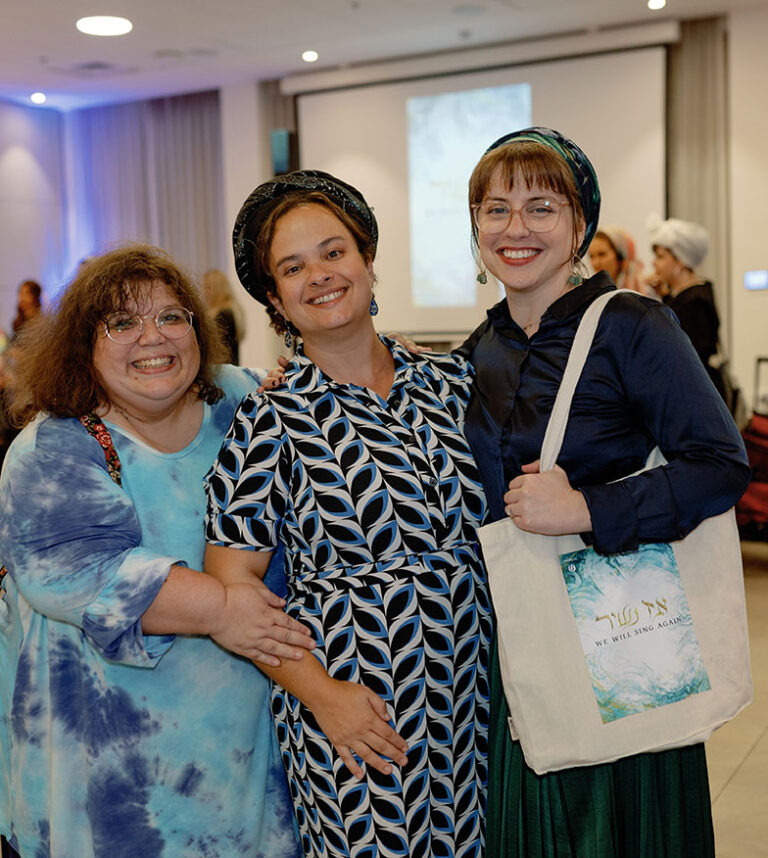
And so began the planning for the slim volume. At first, they thought about 100 pages. But creativity has a life of its own.
And so it was that about a week before Rosh Hashanah, “Az Nashir — We Will Sing Again,” a 505-page book, saw the light of day. It is the first book published by The Layers Press of The Shvilli Center, where Shira is the executive director. She is also the founder and publisher of “The Layers Project Magazine,” and the author of “LAYERS: Personal Narratives of Struggle, Resilience, & Growth of Jewish Women.”
Many of the contributors are well-known in Israel as writers, poets, authors, educators and creatives in a variety of areas. Some of them are newer authors who were discovered and given a voice by the three editors. The cast of writers, in addition to those mentioned above, include Yael Unterman, Yael Shahar, Sherri Mandell, Nechama Goldman Barash, Yael Levine, Tanya White, and Yael Ziegler.
The book includes 30 full color pieces of exquisite artwork, also by women of different nationalities (all of whom live in Israel today), including two by Avital Sharansky. Many of the artists exhibited their work at the launch. Another artist is Yael Harris Resnick, originally from North Hollywood.
There are heartful prayers written by women who have sons or daughters, husbands, or grandchildren who are soldiers. There are prayers for the land, for the people, for children and for grandchildren (as was my own prayer, included in the book). There are prayers for brotherhood and for faith, for safety and for mercy, for peace and for healing, for the hostages and for their families.
There are prayers requesting, or demanding, responses from God, and there are prayers thanking God. There are prayers specifically for women, about pregnancy, mikvah and challah, and a prayer for finding a partner during wartime. There are prayers that are read like poetry, and those that draw from the well of mysticism. There are prayers for repentance, and prayers for redemption.
Sixteen of the 116 prayers were co-written by the three editors – in addition to their individual prayers – and a testimony to their ability to think and create in sync with each other. One of those is called “A Prayer before Bed,” and they write (excerpt):
Heal my heart from today’s pains,
And may we have no more losses, tomorrow.
Grant me the gift of sleep,
To restore my soul from its grieving.
Bless me with more days,
Where I can continue to draw strength from Your revealed miracles,
And I may witness the final redemption,
Where all our days are lived,
In peace.
The editors say that the book is meant to be a companion to the siddur. In their introduction they note that, through the centuries, women wrote prayers, from Babylonia to Spain to the techines, starting in the Middle Ages, and Yiddish prayers, many of which were written by women, in their “mama-loshen.”
At the launch we heard the three co-editors describe their journey to this day, followed by songs appropriate for the Ten Days of Repentance – both haunting and uplifting, some even joyous – headlined by Nina Tokayer, who is one half of the husband and wife singing team Yonina. Nina also played her own contribution to the book, “God of the Children.”
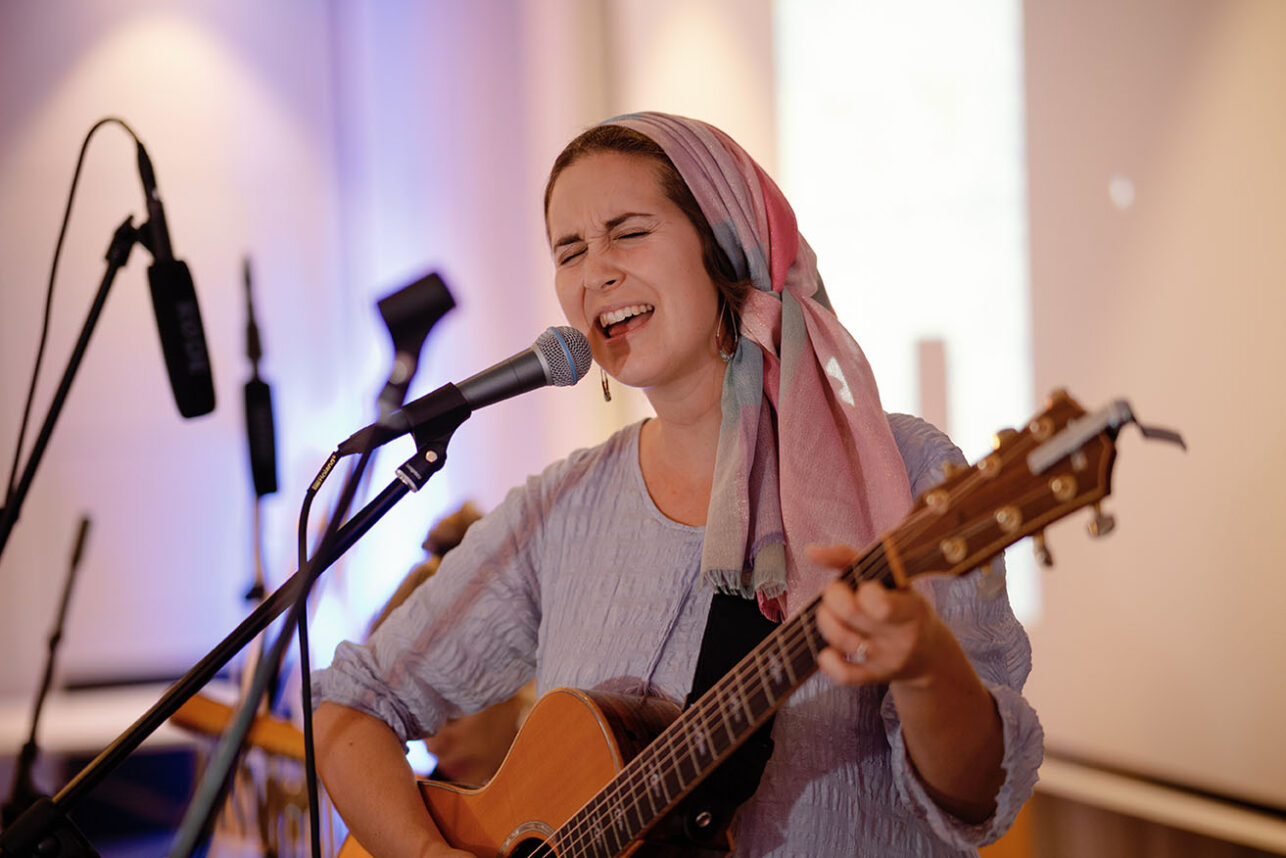
We smiled, we cried, we were inspired.
Interspersed between Nina’s songs, five women were called up, representing different perspectives, to read their prayers out loud, including this writer. Miriam Ciner Friedman wrote one of the most heart-wrenching, “A Prayer for the Release of the Hostages” (excerpts):
Dear God, full of mercy
I lay my broken yellow-ribboned heart at Your feet …
Have we ever needed a miracle more than at this moment?
With my tiny and insignificant voice
I make my own decree:
It’s time
For You to come out of hiding.
Give us a miracle
You can split the sea?
Then You can split those tunnels …
Bring them home
With a strong hand and an outstretched arm,
Carry them on the wings of eagles
To the embrace of their families,
To the embrace of their nation,
To the embrace of their land …
Two additional writer-musicians performed. Rabbanit Batya Hefter sang her recently recorded evocative song to the opening words of Psalm 27, that we read throughout the month of Elul, and until Hoshana Rabbah, that begins with the words “L’David Hashem Ori” (“[A Psalm] of David, The Lord is my light and my salvation, whom should I fear?”) Violinist Ariella Zeitlin Hoffman performed, including her own contribution to the book with new music.
In the words of Shira at the launch: “We know the geula (redemption) from Egypt came through righteous women … So I asked myself, What can we do to prepare for geula, right now? …We need to sing. We need prayer. We need to be together.”
“We know the geula (redemption) from Egypt came through righteous women … So I asked myself, What can we do to prepare for geula, right now? …We need to sing. We need prayer. We need to be together.” -Shira Lankin Sheps
Rachel said, “We are tying ourselves to our foremothers who wrote techines, we are tying ourselves to Chana, mother of Shmuel, who said, ‘I’m not accepting reality …’” She noted that at the end of the “U’netana Tokef” tefilla, we say that prayer is one of the three things that can change reality.
Anne Gordon said that the 55 writers represent voices across a whole range of society. “The project is to bring tefilla into the hearts and homes of everybody in different ways … We hope that whatever tears are spilled, whatever hearts are reached … connects us more to Hakadosh Baruch Hu …”
Briana Grogin read her work at the launch:
“Answering the Modern-Day Call of Naaseh ve-Nishma: We Will Do and We Will Hear” (excerpts)
The day we were supposed to dance with Your Torah, I was left in paralyzing shock.
An ancient hatred, all too eagerly reared its ugly head
And every day since then
Has smashed parts of my identity,
I was forced to build myself anew.
…
As a granddaughter of survivors,
I was raised on stories of tragedy and heroism.
…
Your people have answered the modern-day
Call of Naaseh ve’Nishma.
I see soldiers who have left their families
and have been fighting for a war for our existence.
Naaseh.
I see their wives who have been holding down the homefront for months.
Naaseh.
…
I saw Jews from the Diaspora donate money every week without end
to their brothers and sisters in Israel.
Naaseh.
…
Volunteers from all over the world, arriving in droves to help the farmers pick their produce.
Naaseh.
…
I know now this is what it means to be a Jew.
A people that we can be proud to be part of.
We are each an important piece of the puzzle here,
To be living as a Jew at this time in history.
Naaseh – We act.
Now we wait to hear Your voice.
To Nishma – We are listening.
Adina Kopinsky read one of her deeply moving prayers also:
“Ayeka [Where Are You?]” (excerpt)
…
In my living breath I feel Your breath sway,
hear our intermingled voices softly speak:
Whose is this hum of wind? To whom
these hands that span the globe?
Whose mind questions me into creation?
Whose voice calls from the darkling past –
to ask me where I am?
Lord, if You don’t know – how could I?
If You are a Who
and not a What,
I must be a shadow
dancing in Your sky.
On Oct. 13 an additional launch was held, at Yad Ben Zvi, this one in Hebrew, to a mixed-gender audience, that included a panel moderated by co-editor Rachel and remarks by her father, Natan Sharansky. Additional speakers were award-winning author Emuna Elon, former MK Tehila Friedman, and Rabbanit Dr. Tamar Meir, who are also contributors to the book.
Rachel said that many women – and men – had said they felt “stuck” during this year. “Tefilla does not just build a bridge between ourselves and God, but also between ourselves and each other …”
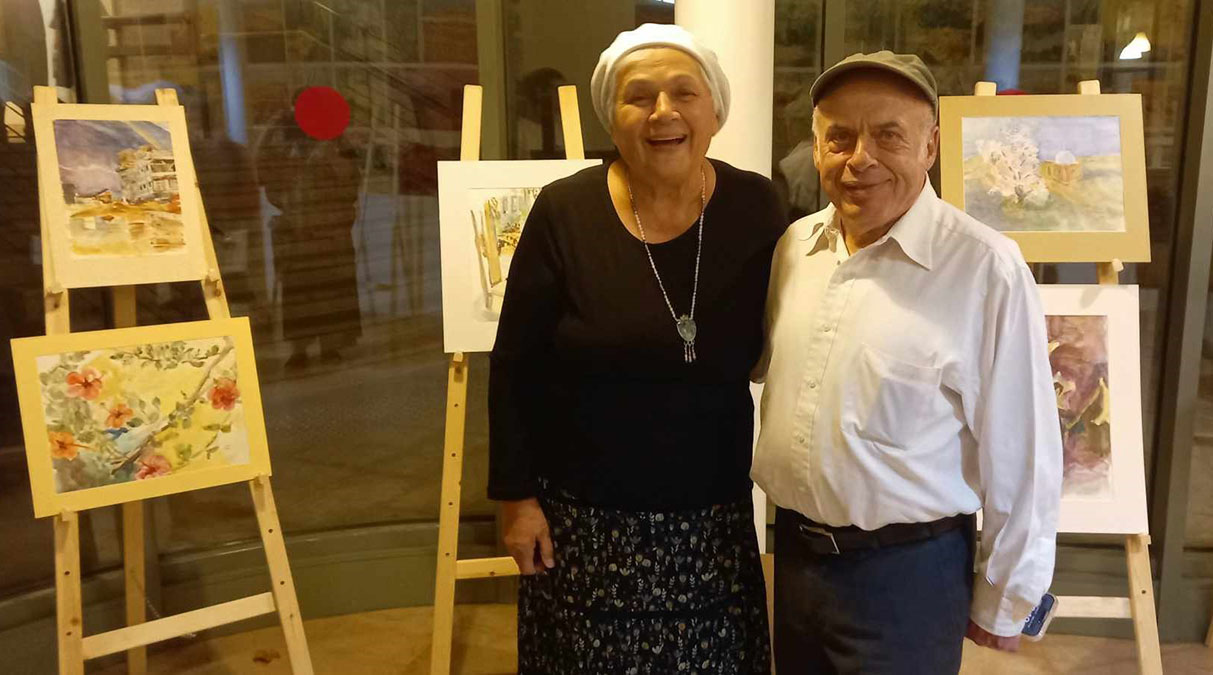
Natan Sharansky described how he also wrote prayers while he was in prison, “Because it was important to me that we don’t give in to them.” His captors tried all kinds of threats and temptations to try to get him to expose other dissidents. He wanted his wife and Am Yisrael to also be strong. And how could he speak to his wife and with Am Yisrael, he thought. Only through prayer. He didn’t really know prayers, other than some blessings, so he would say each time, as he walked to the interrogation room, “Blessed art thou God, Lord and King of the universe, Give me strength and courage and intelligence and luck and patience to get out of this prison and get to Eretz Yisrael in a straight and proper way.
“Afterwards, someone corrected my grammar of the prayer,” he said, to the audience’s laughter, “but I think God understood me.”
Shira concluded the Oct. 9 launch by reading from the last prayer in the book, her own, called “A Prayer for Mashiach,” in which she writes (first and last verses brought here):
In the early weeks of the darkest month,
When the moon was blocked by fear,
And our blood was still soaking into the ground,
There were whispers that Your face was hidden …
Please –
Show us Your secret messianic vision
We are ready with our timbrels by the door,
Eager to rush into the streets of Your holy city,
Songs of praise freed from our throats,
Feet flying with dance,
As we usher in a new era.
May the new era come speedily, in our days.
“Az Nashir — We Will Sing Again” can be ordered through Amazon.
Toby Klein Greenwald is an award-winning journalist and theater director and editor-in-chief of WholeFamily.com.








